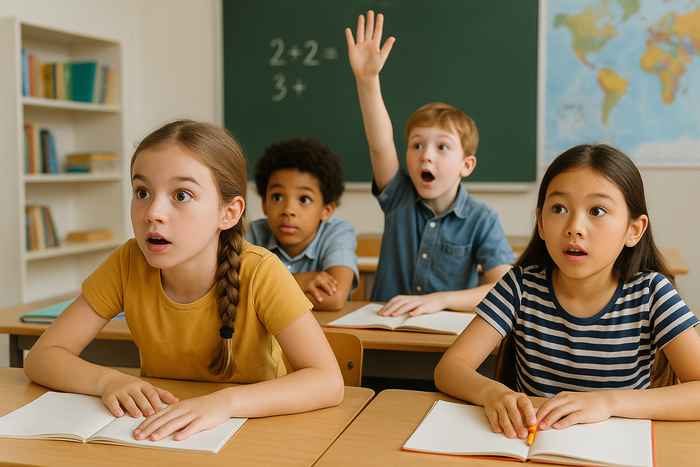Curiosity at work: Tracing the path from curiosity to learning in children
28 October 2025

The Importance of curiosity in learning
Epistemic curiosity is widely recognized as a crucial factor in children’s learning, yet its precise role in the learning process remains somewhat unclear. Previous research has shown that adults tend to remember information better when they are in a state of high curiosity compared to low curiosity (e.g., Gruber et al., 2014). These findings largely stem from studies using the Trivia paradigm, in which participants learn answers to trivia questions that evoke varying levels of curiosity, after which their recall is tested.
Evidence that curiosity boosts memory in youth
More recently, the Trivia paradigm has also been applied to investigate the relation between curiosity and recall in children and adolescents. Consistent with the results reported by Fandakova and Gruber (2021), in our study (Van Schijndel & Jansen, 2025) we found that 10- to 12-year-old children also better remember information for which they have high curiosity.
Curiosity fuels exploration
Most previous empirical work on curiosity-driven learning in children has focused on a single learning outcome, such as memory recall as examined through the Trivia paradigm. In contrast, our study sought to integrate different lines of research by adapting the Trivia paradigm to examine not only the relationship between curiosity and memory performance, but also curiosity and the desire to explore. The findings revealed that curiosity was positively related not only to recall, but also to children’s motivation to further explore the topic in question.
The role of prior knowledge
Another possible explanation for the recall results has to do with what kids already know. The Trivia paradigm usually includes questions from different domains like art, history, and science. If children are more curious about certain topics, they might also know more about those areas to begin with. In that case, enhanced recall could stem not only from curiosity, but also from prior knowledge facilitating the remembering of new information. In our study, we tested this idea and found that curiosity still predicted recall even after taking prior knowledge into account.